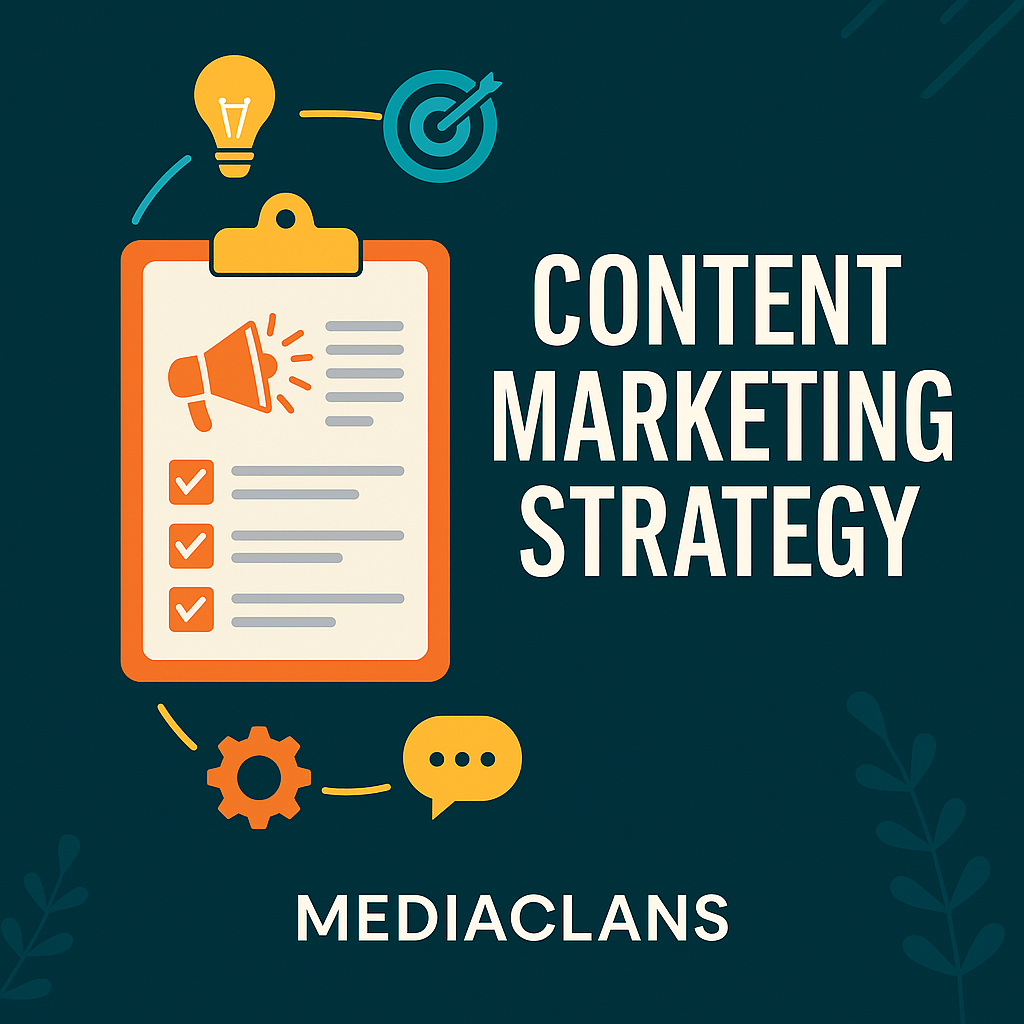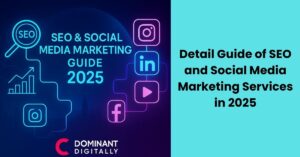
In 2025, content is no longer just a tool for engagement—it’s the cornerstone of building trust, authority, and customer loyalty. A well-executed content marketing strategy allows brands to speak directly to their audience’s pain points, answer their questions, and guide them seamlessly through the buyer journey.
When executed correctly, a content marketing strategy can significantly increase visibility, drive organic traffic, and generate leads without relying solely on paid advertising.
What is a Content Marketing Strategy?
A content marketing strategy is a structured approach to planning, creating, distributing, and measuring content with the goal of achieving specific business objectives. This could range from increasing brand awareness and building thought leadership to nurturing leads and driving sales.
The strategy encompasses all content types—blogs, videos, podcasts, infographics, newsletters, and more—and is tailored to reach and resonate with your target audience at every stage of the funnel.
Step 1: Define Your Goals and Audience
Start with SMART —Specific, Measurable, Achievable, Relevant, and Time-bound. Are you aiming to grow traffic by 30%? Generate 50 new leads per month? Improve customer retention by 10%?
Next, build detailed buyer personas. Know who your audience is, what challenges they face, and where they spend their time online. Your entire content marketing strategy should revolve around delivering value to these personas.
Step 2: Audit Existing Content
Before producing new content, conduct a content audit. Review what’s already published on your website and social channels:
- Which pieces are performing well?
- What content is outdated or underperforming?
- Where are the content gaps in your customer journey?
This step helps you repurpose or optimize existing assets and informs future content creation.
Step 3: Choose the Right Content Types
Your content marketing strategy should include a healthy mix of formats based on your audience preferences and goals:
- Blog Posts for SEO and thought leadership
- Videos for storytelling and higher engagement
- Infographics for simplifying complex information
- Email Newsletters for lead nurturing
- Podcasts for deeper, episodic conversations
Mixing formats keeps your audience engaged and extends your reach across different platforms.
Step 4: Create a Content Calendar
A content calendar helps you stay consistent and strategic. Plan the content around key industry dates, product launches, and seasonal trends. It should include:
- Topics and titles
- Target persona
- Distribution channel (e.g., blog, YouTube, LinkedIn)
- Publishing schedule
Consistency builds trust, and having a calendar ensures you publish content regularly without last-minute scrambling.
Step 5: Optimize Content for SEO
A strong content marketing strategy should always align with SEO best practices:
- Use keyword research tools to find relevant search terms for marketing.
- Optimize meta titles, meta descriptions, headers, and image alt text.
- Build internal links that help users easily navigate and explore relevant content across your website..
- Ensure your content is mobile-friendly and quick to load.
SEO-optimized content increases your organic reach and brings in qualified traffic over the long term.
Step 6: Distribute and Promote Your Content
Creating great content is only half the job, promotion is equally important as creating the content.
Share your content across:
- Social media platforms like LinkedIn, Instagram, and Twitter
- Email campaigns
- Online communities and forums
- Influencer partnerships and guest blogs
Use paid promotion sparingly to amplify top-performing content and drive initial traction.
Step 7: Track Performance and Refine Strategy
Your content marketing strategy should be data-driven.
Track KPIs such as:
- Traffic and engagement metrics (bounce rate, time on page)
- Conversion rates and lead generation
- Social shares and backlinks
Use these insights to refine your approach, double down on what’s working, and pivot where needed.
Example: A Digital Marketing Agency’s Success with Content
Consider a digital marketing agency like Mediaclans. By leveraging a robust content marketing strategy, the agency can publish case studies, industry trend blogs, and educational videos that demonstrate expertise and generate inbound leads. Whether it’s SEO-driven content or niche whitepapers, Mediaclans can nurture potential clients with valuable information throughout the sales cycle.
Finishing it up : Make Content Work for You in 2025
In an era where attention is scarce, content that resonates wins. A well-crafted content marketing strategy helps you cut through the noise, position your brand as a trusted authority, and build lasting customer relationships.
Focus on delivering real value, optimize for search, promote effectively, and keep improving based on data. By doing so, you’ll attract and retain customers more efficiently—and sustainably—than ever before.





